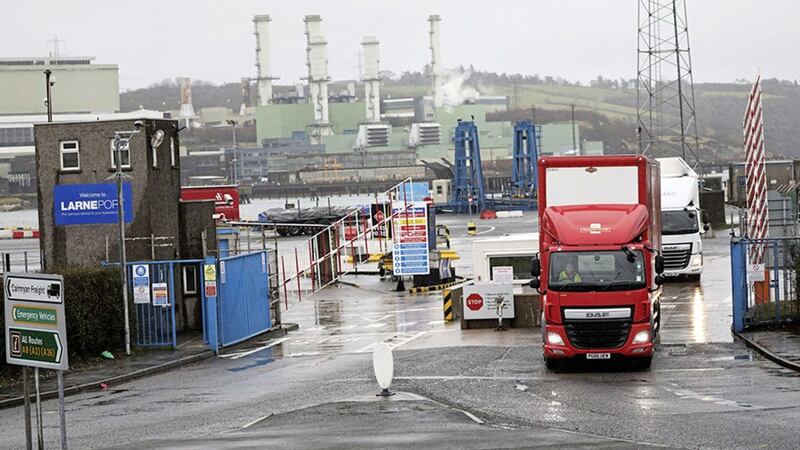THE tale of Brexit and the Irish Sea border is one of political expediency, unforeseen consequences and countless ironies.
If, in June 2016, the DUP could've seen five years into the future, it's unlikely the party would have been so gung-ho in its support for leaving the EU.
Yet given its propensity for shooting itself in the foot, who knows?
Almost three months on from the signing of the UK-EU agreement, we find ourselves not in the best of both worlds, with past political disagreements put to bed, but mired in legal challenges and hindered by bad faith.
In an ideal world – or one without Brexit – there would be no protocol.
Regrettably, the result of the EU referendum created a set of circumstances that put Northern Ireland centre stage.
Protecting the Good Friday Agreement by maintaining a free-flowing border between north and south was regarded as a priority of the post-Brexit arrangements, even though the 1998 accord made no specific reference to the once heavily-guarded frontier which the single market and the peace process had rendered invisible.
The agreement Theresa May sought to strike with Brussels would've have kept all of the UK in the customs union and avoided the need for any checks.
This deal also included the so-called backstop, a provision for a worse-case scenario in which the north would be aligned to the EU.
However, this possibility was seen as unpalatable to Britain's hard Brexiteers and to Arlene Foster, who in December 2017 vetoed the proposed deal on the basis that if there was no comprehensive trade agreement, it would result in a regulatory border in the Irish Sea.
The DUP expected greater sympathy and resolve from Boris Johnson but, free of the confidence and supply deal that had shackled his predecessor, he forged an agreement with the EU that included the protocol.
It is a cumbersome arrangement that results in costly bureaucracy and what appears to be petty adherence to the rulebook but in everybody's opinion, bar that of political unionism, it is better than a land border.
However, in order to function effectively, the protocol needs consensual support, good will and time to bed in.
Instead we have divided opinion, bad faith and legal challenges.
On the one hand, there's the various unionist challenges, mostly focused on the protocol's apparent undermining of the Good Friday Agreement, while at the same time the EU is pursuing the British government on the basis that its recent unilateral extensions of grace periods is a breach of an international treaty.
Using the courts is a tactic that should be employed as a last resort, when all political avenues are exhausted.
It's akin to suing for divorce after the first raised voices in a marriage, when negotiation, reasoned argument and compromise would be more appropriate.
In the various High Court challenges being brought by unionists, the motivation would appear solely political, with the action itself weaponised as much if not more than the outcome, which even many of the applicants know won't be in their favour.
Arguably the same criticism can be applied to the EU, which has wasted little time in lawyering up in the face of the British government jumping the gun on grace period extensions – a matter that was understood to be close to resolution.
In the midst of all these writs and costly legal challenges, we have yet to see anything that looks remotely like an alternative to the Irish Sea border, which suggests there isn't one.
Whatever the outcome of the court action, whether from unionists or the EU, the end result will be a return to the negotiating table and a political solution that for all intents and purposes will look very much like the protocol.







